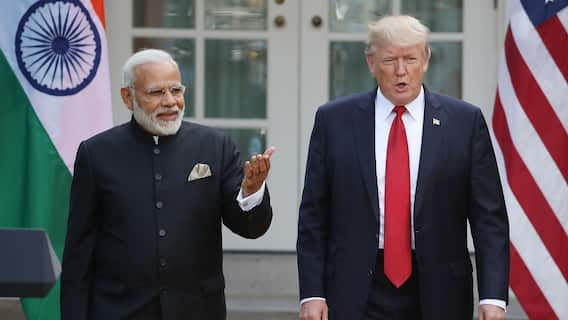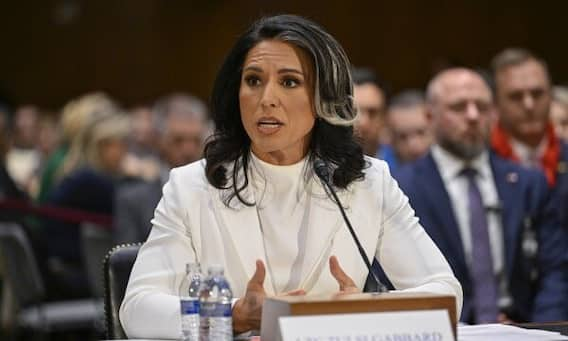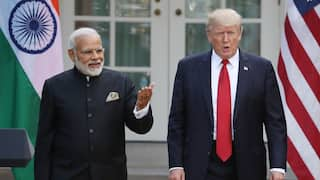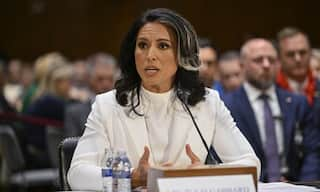US: Biden's Debate Performance Triggers Panic Among Democrats, Fuels Speculation Of Replacing US Presidential Nominee
Throughout the 90-minute confrontation, Joe Biden's performance was marked by repeated stumbles, awkward pauses, and a subdued speaking style that left the party in a state of near-panic.

Democratic allies of Joe Biden had hoped for a commanding display of strength and vigour from the 81-year-old president during Thursday night's pivotal debate against former President Donald Trump. However, what transpired on the grand stage of American politics failed to meet even their modest expectations. Throughout the 90-minute confrontation, Biden's performance was marked by repeated stumbles, awkward pauses, and a subdued speaking style that left party strategists and grassroots supporters alike in a state near-panic, US media reports said.
According to reports, concerns quickly escalated among Democrats, both publicly and privately, about Biden's ability to lead the party against his 78-year-old Republican rival in the upcoming presidential election this autumn.
"I'm not alone in feeling heartbroken right now. Many people who watched tonight are deeply troubled for Joe Biden," former Democratic Senator Claire McCaskill lamented on MSNBC, as reported by the Associated Press (AP). "I am not sure if there's anything that can be done to fix this".
The immediate question looming over Biden is whether the damage from his lackluster debate performance is irreparable. With the election still over four months away, many voters have yet to fully engage, Biden's campaign and supporters possess substantial resources, including millions of unspent advertising dollars and infrastructure in crucial swing states, the AP report said.
History offers examples of candidates recovering from rough debate outings, such as Barack Obama in 2012 following a challenging debate against Mitt Romney.
It is to be noted that Biden's reelection bid in 2024 has always been a gamble, banking on the belief that voters will ultimately rally behind an aging politician with mixed approval ratings in a rematch few Americans relish. As per reports, despite these vulnerabilities, Biden's team has steadfastly maintained that he is uniquely positioned to prevent Trump from returning to the White House, as he successfully did four years ago.
However, confidence in this narrative wavered following Biden's lacklustre debate showing.
"It was a slow start. That's clear to everyone. I won't argue against that," Vice President Kamala Harris conceded on CNN post-debate. "But what matters is the choice we face in November, one of the most consequential elections of our lifetime".
Surrogates for Biden were slow to enter the spin room in Atlanta after the debate, and when they did appear, they largely avoided media questions. Instead, they focused on countering Trump's statements during the debate, including his failure to condemn those involved in the January 6 Capitol attack.
California Governor Gavin Newsom, a potential future presidential candidate and Biden's prominent advocate, urged fellow Democrats not to succumb to Panic.
"I think it's unproductive and unnecessary. We need to stand firm, support our president, and not let one performance shake us," Newsom urged in an interview on MSNBC, as reported by AP. "This isn't the time to retreat. What kind of party would we be if we did?"
Yet, signs of unease were palpable as some Democrats openly called for exploring alternatives to Biden. Former Obama campaign aide Ravi Gupta captured the word on X, reflecting discontent among party members.
"Every Democrat I know is texting that this is bad,” Gupta posted on X. "Just say it publicly and begin the hard work of creating space in the convention for a selection process. I’ll vote for a corpse over Trump, but this is a suicide mission."
Replacing Biden as the Democratic nominee would be challenging under current party rules, requiring cooperation or a substantial revision at the August national convention. Biden secured the majority of Democratic delegates during the primary process, and party rules mandate that delegates reflect the sentiments of their electors.
Trending News
Top Headlines










































